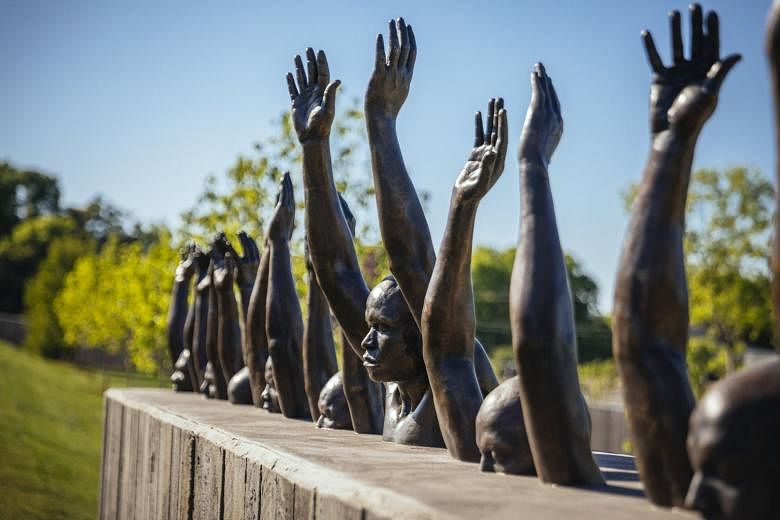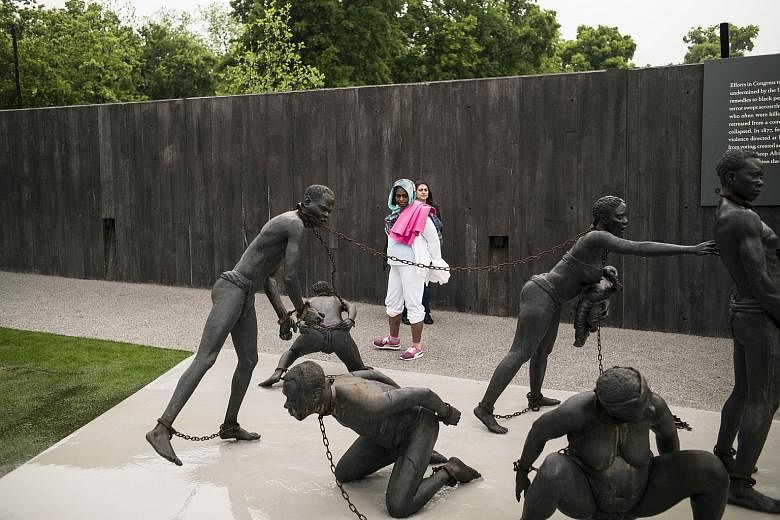WASHINGTON (AFP) - A unique memorial remembering the thousands of black Americans lynched in public acts of torture opened on Thursday (April 26) in the southern US.
The National Memorial for Peace and Justice in Montgomery, Alabama, aims to promote reflection on the country's history of racial inequality, the reverberations of which are still felt today.
"This shadow cannot be lifted until we shine the light of truth on the destructive violence that shaped our nation, traumatized people of color, and compromised our commitment to the rule of law and to equal justice," Bryan Stevenson, director of the Equal Justice Initiative (EJI) behind the project, says on the memorial's website.
EJI, a non-profit legal assistance group, documented the lynching of more than 4,400 black people in the United States between 1877 and 1950.
While slavery lasted for centuries, "nothing sustained racial inequality more than lynching," it said on its website.
"Lynching was racial terrorism." Set on a six-acre (2.4 hectare) site, the memorial contains 800 suspended steel monuments, one for each county where a lynching occurred. Each is engraved with the names of victims.
Identical monuments in the surrounding field are "waiting to be claimed and installed in the counties they represent," the museum website said.
"Over time, the national memorial will serve as a report on which parts of the country have confronted the truth of this terror and which have not."
Sculptures of black men and women in chains are also displayed.
US civil rights activist Jesse Jackson, pictured on his Twitter account visiting the grassy memorial, said it "has exposed our dark history." He said that despite 200 attempts, Congress has yet to pass an anti-lynching law.
"Congress must respond and pass legislation," he said on Twitter.
Although the United States ended racist policies decades ago, the legacy of discrimination can still be felt.
Fatal police shootings of black suspects in recent years have fueled a nationwide debate over race and criminal justice.
There has also been a growing controversy over monuments to generals and leaders of the 1861-1865 Confederacy which represented slave-owning states.



